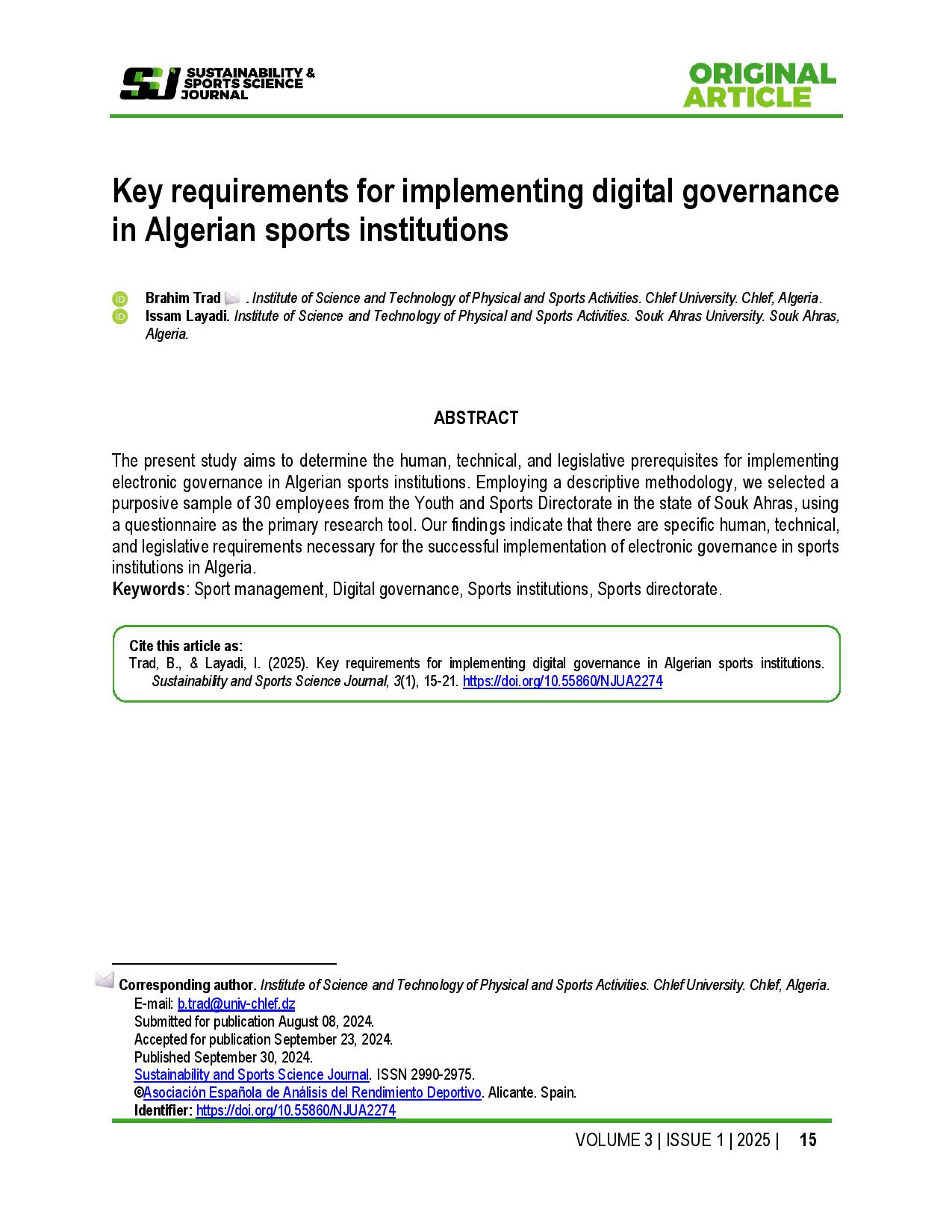Key requirements for implementing digital governance in Algerian sports institutions
Main Article Content
Abstract
The present study aims to determine the human, technical, and legislative prerequisites for implementing electronic governance in Algerian sports institutions. Employing a descriptive methodology, we selected a purposive sample of 30 employees from the Youth and Sports Directorate in the state of Souk Ahras, using a questionnaire as the primary research tool. Our findings indicate that there are specific human, technical, and legislative requirements necessary for the successful implementation of electronic governance in sports institutions in Algeria.
Article Details

This work is licensed under a Creative Commons Attribution-NonCommercial-ShareAlike 4.0 International License.
References
Chappelet, J.-L. (2018). Beyond governance: The need toimprove the regulation of international sport. Sport inSociety, 21(5), pp.724-734. https://doi.org/10.1080/17430437.2018.1401355
Cho, S., Conrad, M., Holden, J., & Dodds, M. (2023). Regulatory Schemes and Legal Aspects of Sport Governance: Theoretical Perspectives and Conceptual Framework. Journal of Global Sport Management, 9(2), 269–284. https://doi.org/10.1080/24704067.2023.2249481
Conceição Castro & Cristina Lopes.(2022). Digital Government and Sustainable Development. Journal of the Knowledge Economy,v.13,pp.880-903. https://doi.org/10.1007/s13132-021-00749-2
Jain Palvia, S. C. and Sharma, S. S.(2007). E-government and e-governance,Deinitions/ Domain framework and status around the world.
Janowski, T. (2015).Digital government evolution: from transformation to contextualization. Gov. Inf. Quart. V.32,n.3,pp.221-236. https://doi.org/10.1016/j.giq.2015.07.001
O'Boyle, I., & Bradbury, T. (Eds.). (2013). Sport governance: International case studies. London and New York: Routledge Press. https://doi.org/10.4324/9780203408773
OCDE.(2021). The E-Leaders Handbook on the Governance of Digital Government OECD Digital Government Studies, OECD Publishing, Paris.
Strohmeier, S. (2020). Digital human resource management: A conceptual clarification. German Journal of Human Resource Management, 34(3), 345-365. https://doi.org/10.1177/2397002220921131
Twizeyimana, J. D., & Andersson, A.(2019).The public value of E-Government-A literature review. Government Information Quarterly, 36(2), 167-178. https://doi.org/10.1016/j.giq.2019.01.001




